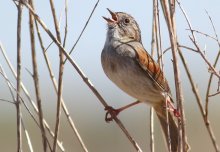

Going straight
Immune cells can switch from ‘gang members’ to ‘police officers’
When the immune system overreacts, as in an allergic reaction, cells causing trouble can change into cells that dampen the reaction.



Immune cells can switch from ‘gang members’ to ‘police officers’
When the immune system overreacts, as in an allergic reaction, cells causing trouble can change into cells that dampen the reaction.


Promoting cycling in cities can tackle obesity
Daily travel by bike leads to the lowest BMI, according to a study of seven European cities, suggesting cities should promote active commutes.
 1
1


Molecular oxygen in comet’s atmosphere not created on its surface
Scientists have found that molecular oxygen around comet 67P is not produced on its surface, as some suggested, but may be from its body.


Bacteria can ‘divide and conquer’ to vanquish their enemies
Some bacteria can release toxins that provoke their neighbours into attacking each other, a tactic that could be exploited to fight infections.
 1
1


Feature
Imperial’s scientific glassblower talks about his life’s work before retirement
Steve Ramsey, who has worked with glass for 50 years, retires this month from creating bespoke scientific equipment.
 5
5


City bees outbreed their country cousins
Bumblebees placed in urban areas produce more offspring than colonies in agricultural areas, concludes a surprising new study.


Managing inheritance of deadly genetic diseases a step closer with new study
The chance of passing on certain types of genetic diseases changes with the age of the mother, according to a new study in mice.


Slime, supercomputers, and pond lurkers at this year’s Summer Science Festival
The annual Summer Science Exhibition is the Royal Society’s week-long free festival celebrating the cutting edge of UK science.


Greener energy generation alone will not help us reach climate goals
Transport, buildings and industry need to start using lower carbon sources of energy now if we are to avoid the worst impacts of climate change.


Stubborn sparrows may have sung the same songs for hundreds of years
By preserving songs for centuries, American swamp sparrows show a cultural stability previously only seen in humans.